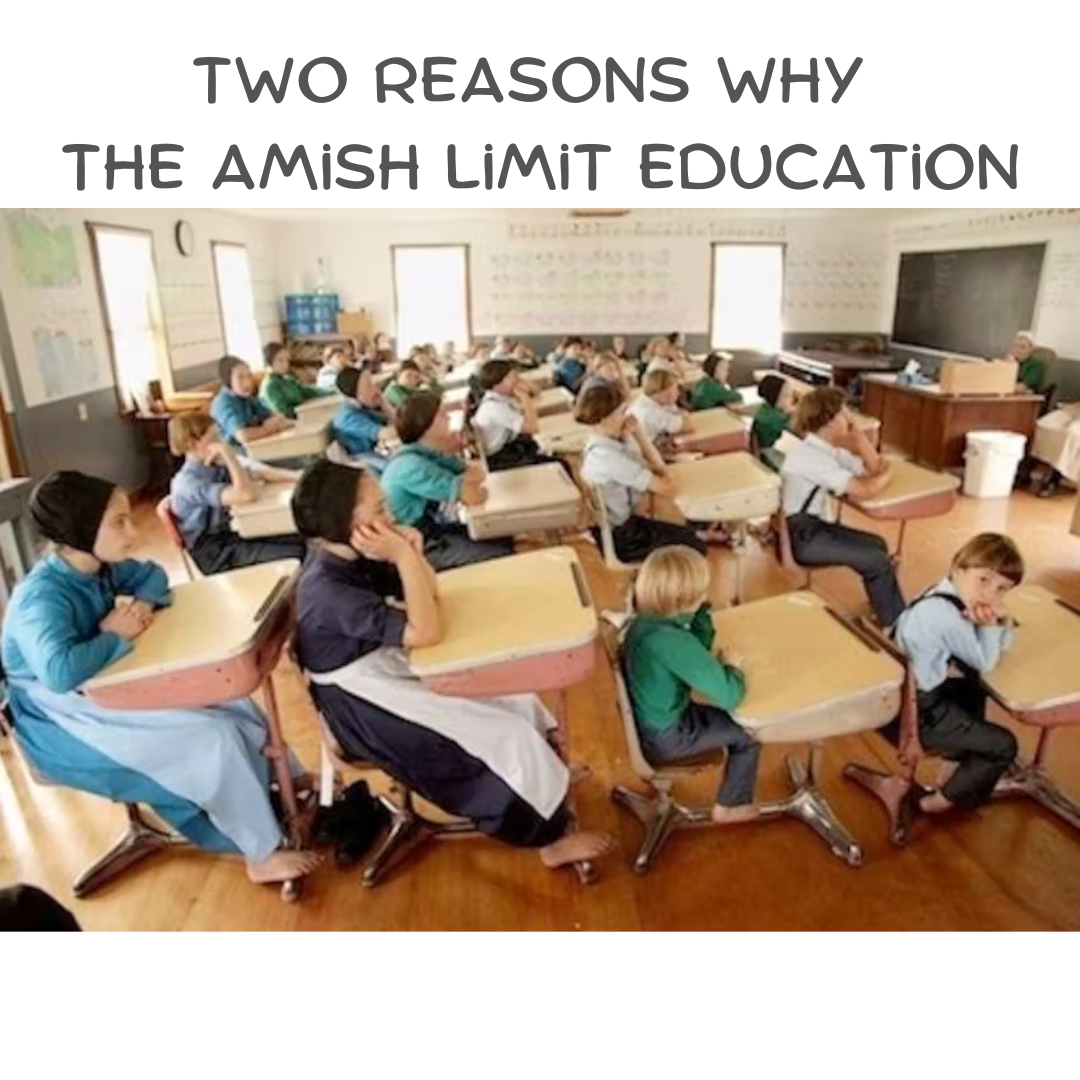So why do Amish only go to school through the eighth grade?
Well, there’s two main reasons for this, and the first one is what you might call practicality. Amish occupations are much more manual or craftsmanship oriented. They’re farmers, they’re woodworkers, they’re builders. So therefore, they really emphasize things like hands-on learning and apprenticeship. So they don’t see a great need for education beyond eight grades.
Once you get the basics, mathematics, reading, writing, the tools that you need to function in the world, they don’t see a whole lot of value for the more abstract learning, and that can come beyond those skills. So one is practicality.
Another one would be what you might call religious objections or seeing higher education as contrary to Amish values. The Amish tend to feel that higher education can promote ideas that are counter to Christian values. The Amish have a literal view of the Bible and the creation story, so they would object to things like evolution.
The Amish also see centralized large schools in more urban settings as also threatening to the small scale rural Amish orientation or Amish values. So for the Amish, they typically educate their children. In one room, Amish run school houses, typically grades one through eight.
In one school, there’s usually one teacher that might have an assistant. The teacher is most of the time a younger Amish female. Students typically get a solid grounding in the three Rs, reading, writing, and arithmetic, as well as some history andome geography. They get German language training because the Amish speak as their first language, Pennsylvania, Dutch or Pennsylvania German, which is not the same as the church German that the Bible would be written in. Some of them may get health or limited science, but there’s not a lot of science taught in Amish schools.
When you look at Amish schools themselves, there can be differences between them as well.
The most plain Amish groups are gonna have a, an even more limited education than the more progressive communities. Some Amish do send their children to public schools. In some communities this is fairly common.
Some Amish may take further supplemental courses. For example, an Amish business person might take a course in accounting. But again, the idea there is what’s practical in what’s needed. Sometimes Amish may go to high school, though it’s not common. Sometimes Amish may get a GED degree, but that is also rare.
So a desire for more education is one reason that some people decide that they don’t want to be baptized in the Amish church or maybe even leave the church. And outright religious education is not provided in Amish schools. That’s not the venue for teaching religion. That’s something they would learn outside the school. However, the Amish do appreciate that prayer and singing of religious songs is something they can do in their own schools.
The key event here to know is the 1972 Supreme Court Decision, Wisconsin versus Yoder. That decision resulted from conflict between Amish parents and school administrators. That decision essentially granted Amish the ability to limit their children’s formal education to eight grades.
So the Amish aren’t anti-education. They definitely continue learning throughout their lives. Just because formal education ends doesn’t mean learning ends. And there’s some very intelligent Amish people and some that are very knowledgeable. You can have your own private library at home.
Many do self-study. So they’re not anti-education. They just don’t see higher education fitting the context of their culture and their values.
I hope that explains that.

